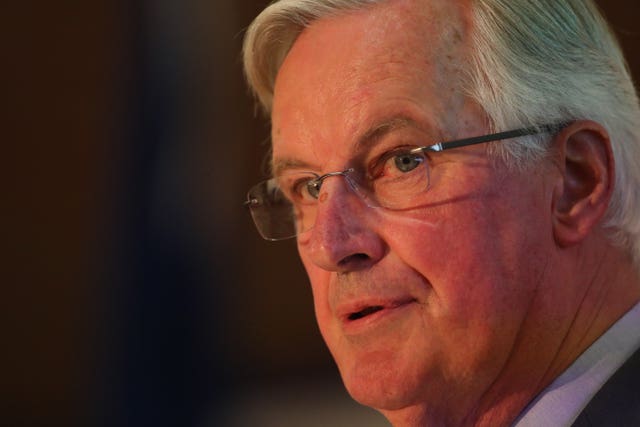
Returning the Parthenon marbles to Greece will not be discussed during the upcoming trade negotiations with the European Union, the Government has confirmed.
A leaked draft of Brussels’ negotiation mandate had, according to reports, included a stipulation that Britain should “return unlawfully removed cultural objects to their countries of origin”.
It was feared that the definition could be applied to include the Parthenon marbles, the ancient Greek sculptures commonly known as the Elgin marbles and on display in the British Museum.
The acquisition of the sculptures has been controversial for more than 200 years and the Acropolis Museum in Athens, which has the remaining sculptures that were left in Greece, has left space empty for their return as part of its current display.
But a Government spokeswoman ruled out the prospect of discussing re-homing the sculptures during next month’s trade talks.
A spokeswoman said: “The EU are still finalising their mandate – this is currently in draft.
“The UK’s position on the Parthenon sculptures remains unchanged – they are legal responsibility of the British Museum. That is not up for discussion as part of our trade negotiations.”
According to a document shared on social media, the EU’s latest negotiating position called for the UK and Brussels to “address issues relating to the return or restitution of unlawfully removed cultural objects to their countries of origin”.
The Guardian reported that the proposition had been argued for by Italy, Spain, Cyprus and Greece, but was about a desire to stop the fraudulent movement of antiquities around Europe rather than a direct reference to the marbles.
The Parthenon marbles, which date back to the fifth century BC, were once in the ancient Greek Parthenon temple and other buildings on the Acropolis of Athens but around half were taken to Britain in the early nineteenth century by staff working for the Earl of Elgin, Thomas Bruce.
The rise in cross-Channel tensions comes as Michel Barnier, the EU’s chief negotiator, warned that the UK could not expect to seal a trade similar to Canada’s, despite the Prime Minister pushing for such a free trade agreement.
Mr Barnier reportedly told journalists in Brussels that Britain was too much of a close competitor geographically to have a Canada-type arrangement.
The EU deal with Canada, which took seven years to hammer out, saw import tariffs on most goods eliminated between the two, though some customs and VAT checks remain.
“A trade agreement that includes in particular fishing and includes a level playing field, with a country that has a very particular proximity – a unique territorial and economic closeness – which is why it can’t be compared to Canada or South Korea or Japan,” Mr Barnier said, according to the BBC.

Mr Barnier’s comments were in response to David Frost, Boris Johnson’s Europe adviser, who used a major speech on Monday to dismiss talk of signing-up to a level playing field during the negotiations.
Mr Frost told students and academics at the Universite libre de Bruxelle: “It is central to our vision that we must have the ability to set laws that suit us – to claim the right that every other non-EU country in the world has.
“So to think that we might accept EU supervision on so-called level playing field issues simply fails to see the point of what we are doing.”
He also vowed that the PM would not extend the transition beyond the current December 31 deadline.
The UK left the EU on January 31 but is currently in a transition period until the end of the year during which it is following Brussels’ rules without any say on them as it looks to reach a new trading arrangement with its largest trading partner.


Why are you making commenting on The National only available to subscribers?
We know there are thousands of National readers who want to debate, argue and go back and forth in the comments section of our stories. We’ve got the most informed readers in Scotland, asking each other the big questions about the future of our country.
Unfortunately, though, these important debates are being spoiled by a vocal minority of trolls who aren’t really interested in the issues, try to derail the conversations, register under fake names, and post vile abuse.
So that’s why we’ve decided to make the ability to comment only available to our paying subscribers. That way, all the trolls who post abuse on our website will have to pay if they want to join the debate – and risk a permanent ban from the account that they subscribe with.
The conversation will go back to what it should be about – people who care passionately about the issues, but disagree constructively on what we should do about them. Let’s get that debate started!
Callum Baird, Editor of The National
Comments: Our rules
We want our comments to be a lively and valuable part of our community - a place where readers can debate and engage with the most important local issues. The ability to comment on our stories is a privilege, not a right, however, and that privilege may be withdrawn if it is abused or misused.
Please report any comments that break our rules.
Read the rules hereLast Updated:
Report this comment Cancel